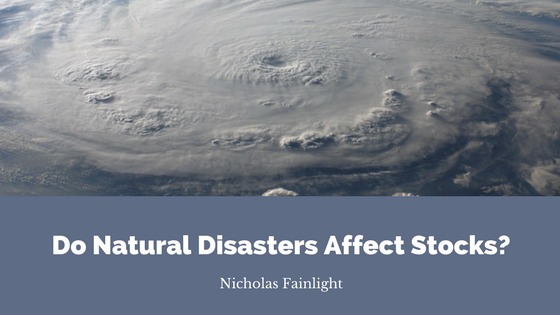A natural disaster such as a hurricane or earthquake can create devastating consequences for any human or home that stands in its way. Buildings are crumpled, water damage from flooding wreaks havoc and what was once a community becomes an area requiring total repair. However, this wreckage does not always indicate that a disruption will also take place in the stock market. While there may be short-term fluctuations in the price of oil and insurance stocks, the long-term health of the stock market is dependent on other factors as well.
Looking To The Past
To understand how natural disasters affect the stock market, it’s best to look at the past and see how it fared after the occurrence of major hurricanes. One example of a major natural disaster that caused widescale destruction was when Hurricane Katrina passed through Alabama, New Orleans and other areas near the Atlantic Ocean. This 2005 event created $108 billion in damages — still the costliest on record. Yet, the stock market continued to head higher and shake off the devastation. How could this be?
What Drives Markets Higher?
While the devastation from a natural disaster does cause a considerable amount of monetary damage, the spectrum of events that occur after the damage has taken place must be examined. In the short term, there will be price fluctuations related to equipment or buildings that have been taken out. However, the United States stock market seems to shake off disasters and continue its steady price movement upwards. This could be due to other economic factors that are already in place such as low inflation, declining unemployment or policy from the Federal Reserve.
Outcome of Hurricanes Harvey and Irma
Hurricane Harvey passed through Texas in late August 2017 with wind speeds reaching 130 miles per hour. One week later, the state of Florida was hit by Hurricane Irma — a Category 4 hurricane. Both of these monsters destroyed anything that stood in their path. Yet, near the end of September, the S&P 500 was reaching new highs. One must consider the rebuilding and investment that will need to be done to create new communities. These factors may be part of the reason for the continued gains seen in the stark market as well as other economic factors that are already in place.
While one would think that major hurricanes or other natural disasters would cause the stock market to fall — that’s not the case — the stock market has continued to rise after these devastating events.
